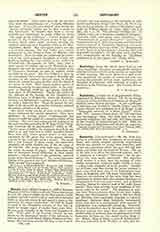

Henten, JOHN, Biblical exegete, b. 1499 at Nalinnes Belgium; d. October 10, 1566, at Louvain. When quite young he took the vows of religion in the Hieronymite Order in Spain, but left it about 1548 to enter the Dominican Order at Louvain, where he had gained a name at the university for sound scholarship. In 1550 he began to teach in the Dominican convent of that city, in which he became regent of studies three years later. He was made defender of the Faith and inquisitor in 1556. While prior of the Louvain convent he was chosen by the theological faculty of the university to take the place of John Hessel, Regius Professor of Sentences, who had been sent by the king to the Council of Trent, and was teaching at the university in 1565. Quetif and Echard (Script. Ord. Praed., II, 195-6) say that he was praised by the writers of his century, especially by William Seguier in “Laur. Belg.”, pt. I, December 5, no. I, p. 57. His principal writings are: (I) “Biblia Latina ad vetustissima exemplaria castigata” (Louvain, 1547, and many times elsewhere); (2) “Commentaria in quatuor Evangelia”, consisting of commentaries by St. John Chrysostom and other early writers collected by Euthymius Zigabenus and interpreted by Henten (Louvain, 1544); (3) “Enarrationes in Acta Apost. et in Apocalypsin” (Louvain, 1845, and repeatedly elsewhere); (4) the same work, together with commentaries on the Epistles, as “Oecumenii commentaria in Acta Apost. etc.” (Paris, 1631).
ARTHUR L. MCMAHON

